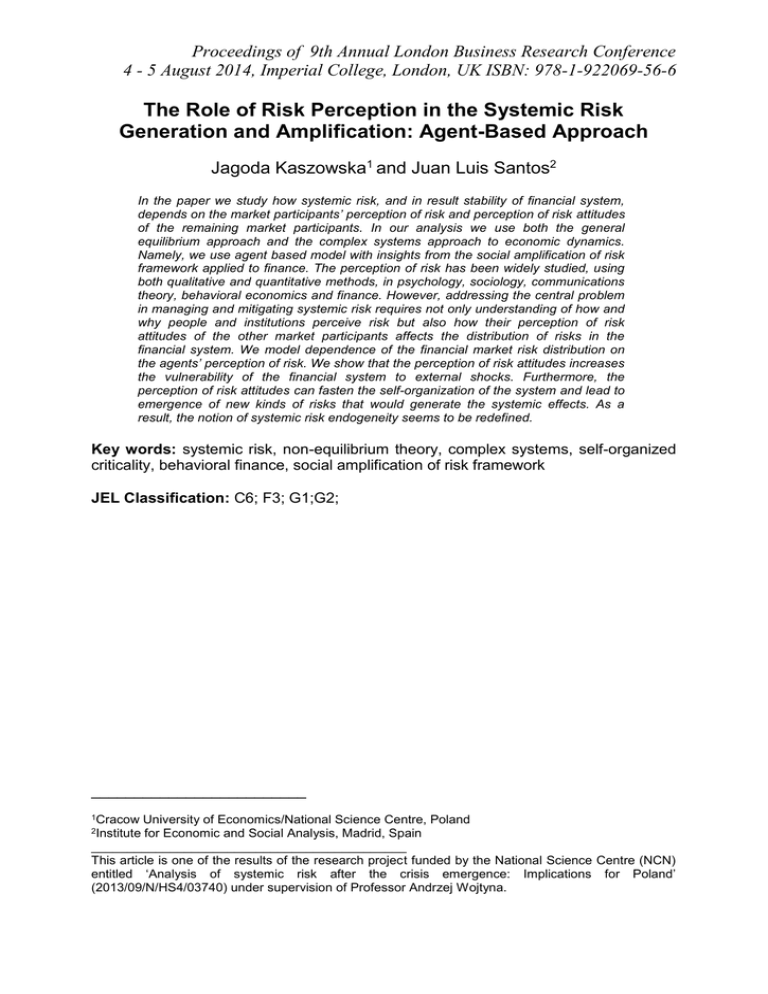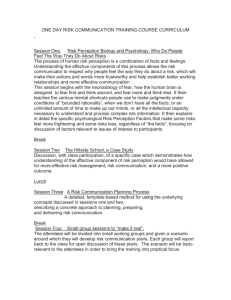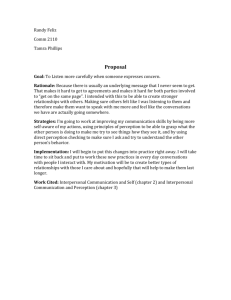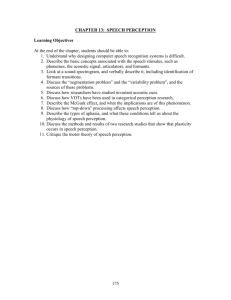Proceedings of 9th Annual London Business Research Conference
advertisement

Proceedings of 9th Annual London Business Research Conference 4 - 5 August 2014, Imperial College, London, UK ISBN: 978-1-922069-56-6 The Role of Risk Perception in the Systemic Risk Generation and Amplification: Agent-Based Approach Jagoda Kaszowska1 and Juan Luis Santos2 In the paper we study how systemic risk, and in result stability of financial system, depends on the market participants’ perception of risk and perception of risk attitudes of the remaining market participants. In our analysis we use both the general equilibrium approach and the complex systems approach to economic dynamics. Namely, we use agent based model with insights from the social amplification of risk framework applied to finance. The perception of risk has been widely studied, using both qualitative and quantitative methods, in psychology, sociology, communications theory, behavioral economics and finance. However, addressing the central problem in managing and mitigating systemic risk requires not only understanding of how and why people and institutions perceive risk but also how their perception of risk attitudes of the other market participants affects the distribution of risks in the financial system. We model dependence of the financial market risk distribution on the agents’ perception of risk. We show that the perception of risk attitudes increases the vulnerability of the financial system to external shocks. Furthermore, the perception of risk attitudes can fasten the self-organization of the system and lead to emergence of new kinds of risks that would generate the systemic effects. As a result, the notion of systemic risk endogeneity seems to be redefined. Key words: systemic risk, non-equilibrium theory, complex systems, self-organized criticality, behavioral finance, social amplification of risk framework JEL Classification: C6; F3; G1;G2; _________________________ 1Cracow University of Economics/National Science Centre, Poland for Economic and Social Analysis, Madrid, Spain ____________________________________________ This article is one of the results of the research project funded by the National Science Centre (NCN) entitled ‘Analysis of systemic risk after the crisis emergence: Implications for Poland’ (2013/09/N/HS4/03740) under supervision of Professor Andrzej Wojtyna. 2Institute




